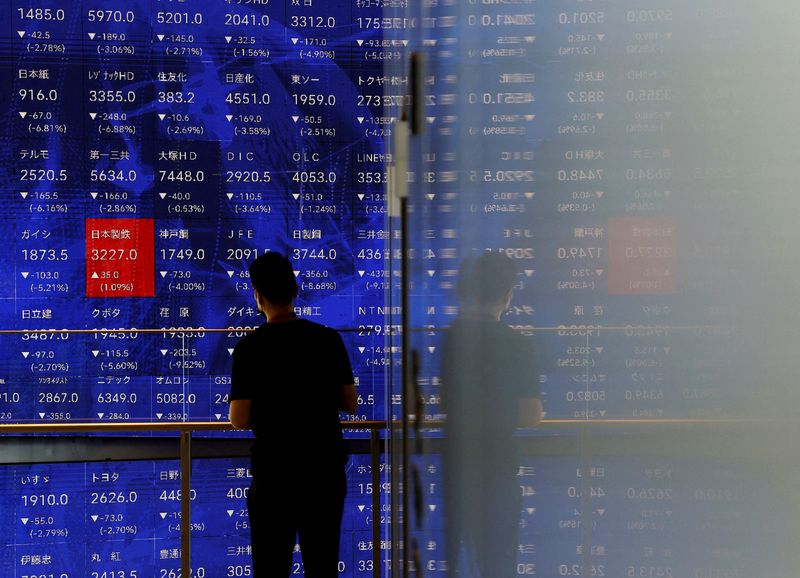Author: Sugiyama Satoshi, Yamazaki Makiko
TOKYO (Reuters) – Japan’s leader on Tuesday urgently eased concerns about wild swings in the country’s financial markets, with the prime minister urging calm and top finance officials convening an emergency meeting to discuss the global stock market selloff.
Japan’s top monetary diplomat Atsushi Mimura said top leaders from Japan’s Finance Ministry, Financial Services Agency and Bank of Japan (BOJ) held a trilateral meeting on Tuesday afternoon to emphasize close coordination between the government and central bank.
“The government and the Bank of Japan agree that it is necessary to monitor developments in the domestic and foreign economies and financial markets with a sense of urgency while calmly assessing what is happening,” Mimura told reporters after the meeting.
The meeting is typically held during times of market turmoil, in part because of the authorities’ willingness to take action. The last such meeting was held on March 27 this year after the yen depreciated sharply.
Global stocks tumbled on Monday, gaining momentum from a selloff that began last week, but regained some ground on Tuesday, leaving wounded investors feeling battered.
The stock index plunged 12.4% on Monday, its biggest percentage drop since the Black Monday crash in 1987, before rising sharply on Tuesday. It closed up 10.2% on Tuesday at 34,675.46 points.
Mimura declined to comment on the factors driving the plunge but said the three parties agreed that Japan’s economy would continue to gradually recover.
Japanese Prime Minister Fumio Kishida urged caution and said it was important to make a calm judgment on the market. He was optimistic about the outlook for the world’s fourth-largest economy, citing factors such as inflation-adjusted real wages rising in June for the first time in more than two years.
“We recognize that Japan’s economy continues to transition strongly to a new stage,” Kishida told reporters in Hiroshima earlier on Tuesday.

Japanese Finance Minister Shunichi Suzuki said the government will monitor and analyze financial market trends and work closely with relevant authorities, including the Bank of Japan.
“It is important to achieve resilient economic growth while coping with the changes before us,” Suzuki said.

